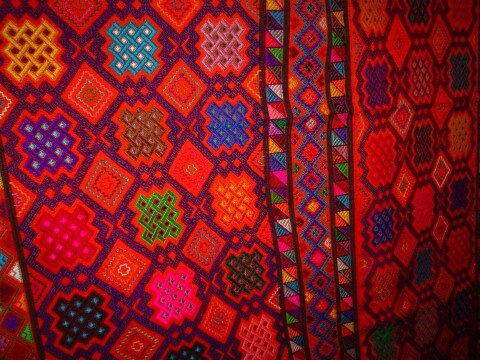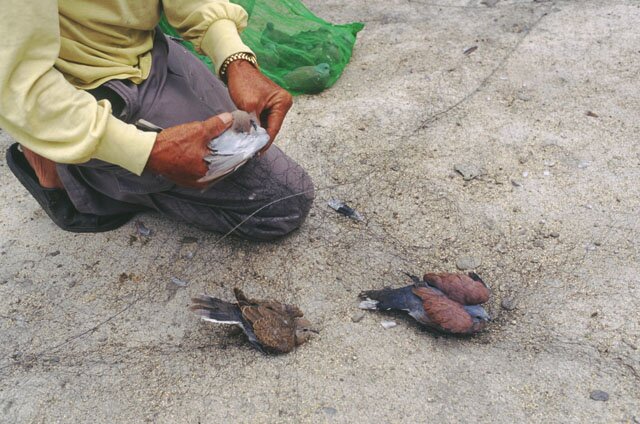BROWSE COUNTRIES/ TERRITORIES
Style for a deal
Women in Hong Kong can rent a luxe bag from Asia’s one and only bag timeshare club. Find out how it works.

A shopper in Hong Kong checks a luxury bag
If there were ever a man rich tai-tais in Hong Kong would love to hate, it would be Kevin Tsai. The former dotcom entrepreneur has committed an unpardonable crime against high society: He has brought expensive branded handbags down to the reach of the masses.
Tsai is the founder of Zhou Hou Di (in Cantonese, “It’s better to rent”), Asia’s first and only timeshare club for lovers of branded handbags. He offers three types of memberships––daily, monthly or yearly.
Not surprisingly, the annual fee is the cheapest. For a fee of HK$14,000 ($1,800), the price of a mid-range Hermes, Louis Vuitton or Tod’s, a member is given the right to use (rent) a different handbag for every day of the year.
If she so wishes, she can go through 365 different bags for the duration, each and every one at or near the cutting edge of fashion. This works out to only $5 a day.
If the customer is in it for only a day, the rate goes up dramatically to $38 (for, say, a Balenciaga Motorcycle) or $45 (an LV monogram denim Speedy). Members are also asked to pay a deposit equivalent to the purchase price of the bag (to ”avoid temptation”, says Tsai with a grin), and to foot the cleaning bill, if the bag gets too dirty.
Zhou Hou Di, which opened its doors in June, is doing a thriving business in busy Causeway Bay. At a glance, the shop, with its display of bags of different shapes, sizes and brands, looks no different from other luxury bag outlets in the swanky Time Square just a stone’s throw away. But the clientele is different.
While it is the rich, famous or sugar-daddy-endowed who shop in Time Square, Tsai, who works out from a more humble location (which still costs him HK$20,000 a month in rent) draws his customer from a much larger base of OL, or office lady. Typically, they are working girls in their 20s and 30s, who are fashionably dressed and who find the existence of a rent-a-bag shop a godsend.
A typical user is marketing executive Elaine (last name withheld). In an interview with the Chinese weekly magazine, East, she explains why it took her less than 10 seconds to become a member. “My job requires me to see many different customers. I need to dress for the occasion. The problem is that I have the clothes but not the bags to match them. Zhou Hou Di has offered me the solution. I don’t find HK$14,000 at all expensive.”
This is music to Tsai’s ears. A talented programmer, Tsai has written library software that is being used in half the schools in Hong Kong. But after eight years in the dotcom business, with its frequent boom and bust cycles, he was looking for a change.
“I thought of renting out branded shirts or expensive toys. But I finally decided on handbags”. Tsai made up his mind when he realised his wife tends to tire of a new bag after using it just once or twice, after which she would start looking to buy another one. “Her friends spend HK$10,000 a year in bags. I think there is a huge potential in renting out expensive bags to people who otherwise could not afford them.’
To get the right products at the right time, Tsai has become a dedicated reader of fashion magazines. He also actively sources feedback from customers and builds up a database of their preferences-- a trick he learnt in his dotcom days. “I often travel to Europe and buy straight from manufacturers, so my customers will be the first to use the new bags in Hong Kong.”
If this sounds expensive, Tsai says the membership fees pay for it all. He figures he can recover the cost of a bag after 30 rentals. Anything after that is pure gravy. “I plan to change the products after six months, so the shop will always look new and up to date. Old bags I will sell to customers at preferential rates.”
So far Tsai has spent more than HK$1 million on his shop, and has made a moderate profit. The biggest drag is the overheads. A trip to Italy, for example, costs the same whether he buys 10 bags or 50 bags. But Tsai is limited by the size of his shop in the number of bags he can take in at any one go. To him, the solution is clear: He has to open more shops.
Tsai is looking to open two more outlets in Tsim Sha Tsui and Mong Kok, deep in OL country. In the longer run, he hopes to build a network of shops in Hong Kong and Kowloon. “An advantage of having more than one shop is that my customers can drop off the bags at any outlet. And, of course, I can offer a wider range of styles.”
What’s stopping others from going into the same business now that Tsai has shown it will work? Nothing. But Tsai is confident he can stay a few steps ahead. “The next step is to offer customers online shopping and bookings for bags. My website will be up soon.” Being a computer nerd, it seems, does have its advantages even in the glamorous world of the luxe handbag.
Login or Register
 Lee Han Shih is the founder, publisher and editor of asia! Magazine.
Lee Han Shih is the founder, publisher and editor of asia! Magazine.
- Asian Dynasties and History
- Conservation of the Environment
- Definition: Culture
- Economy and Economics
- Food and Recipe
- Geopolitics and Strategic Relations
- Health and Body
- Of Government and Politics
- Religion and Practices
- Social Injustices and Poverty Report
- Society, Class and Division
- Unrest, Conflicts and Wars

































 Another Point
Another Point From Jerusalem to the West Bank
From Jerusalem to the West Bank
Comments
Post new comment